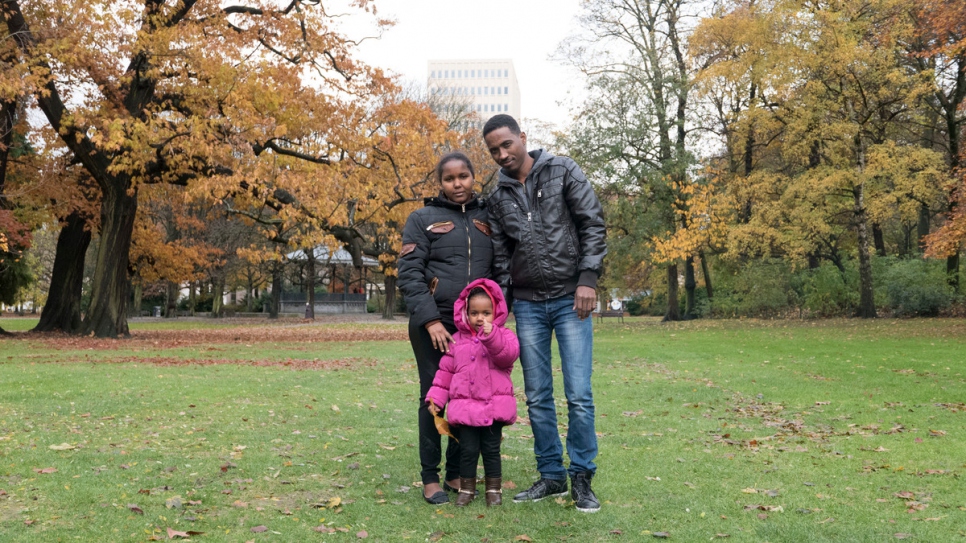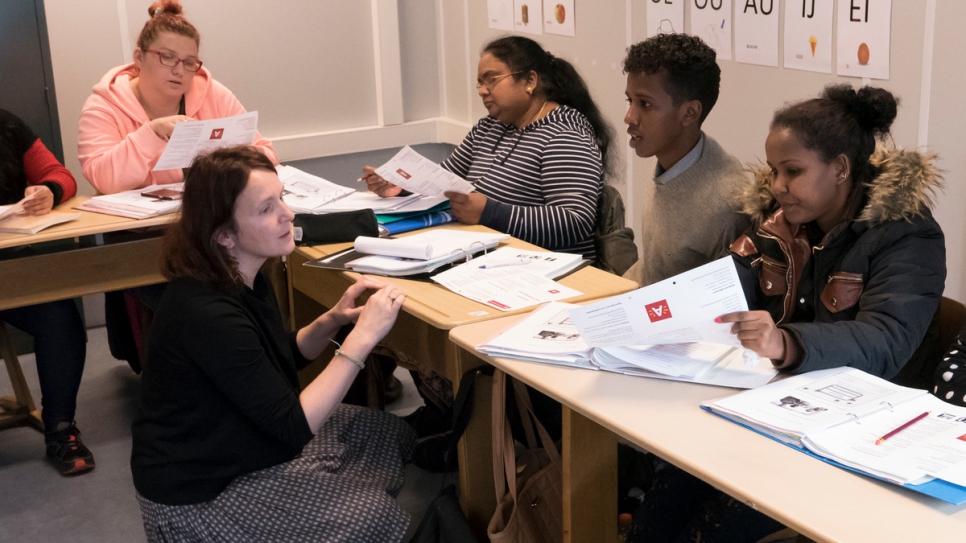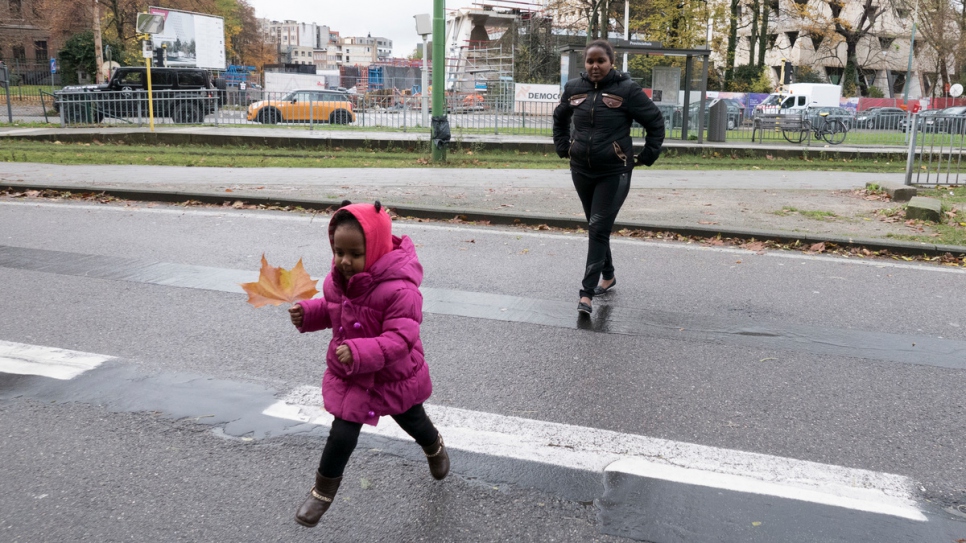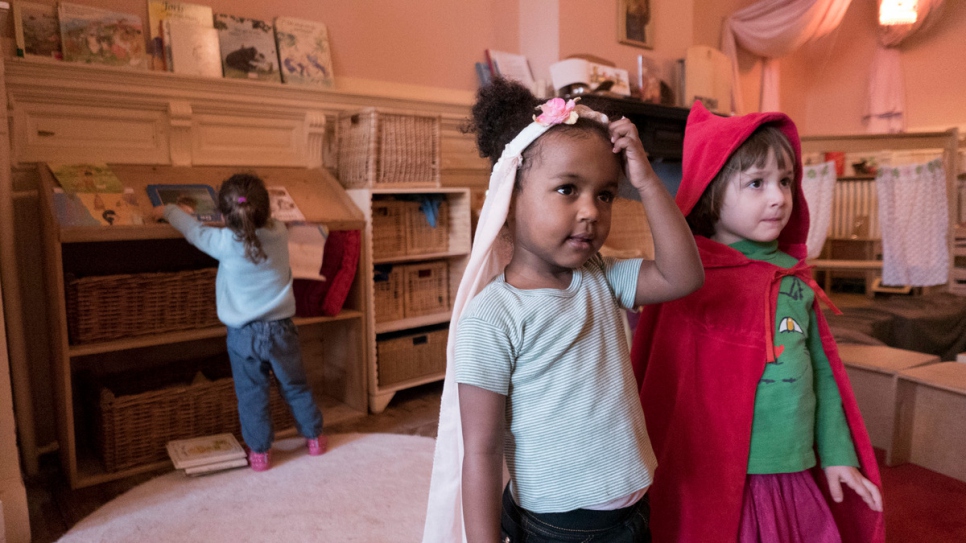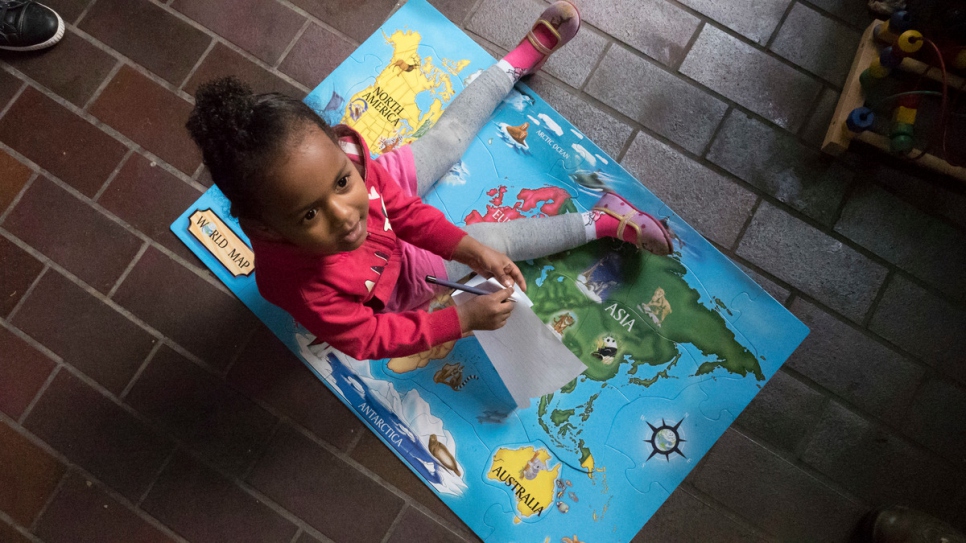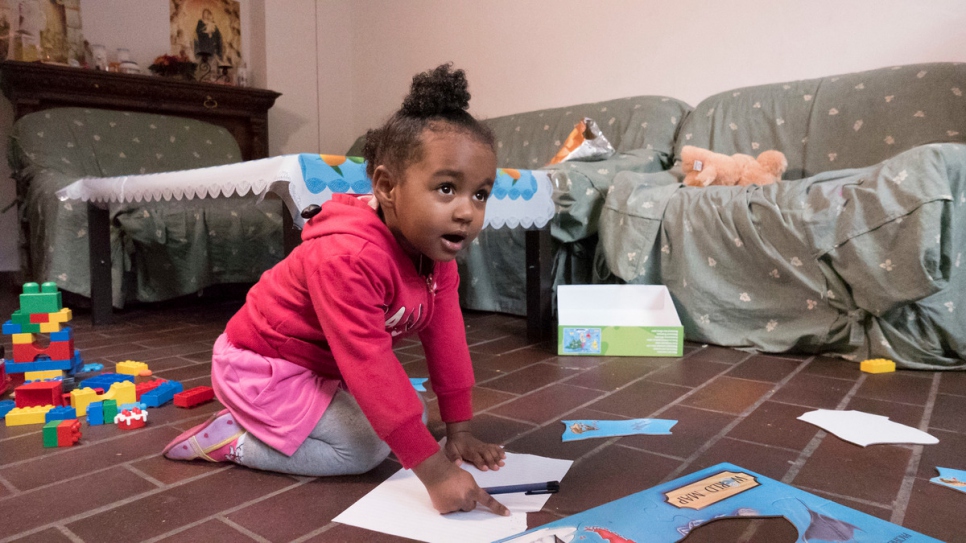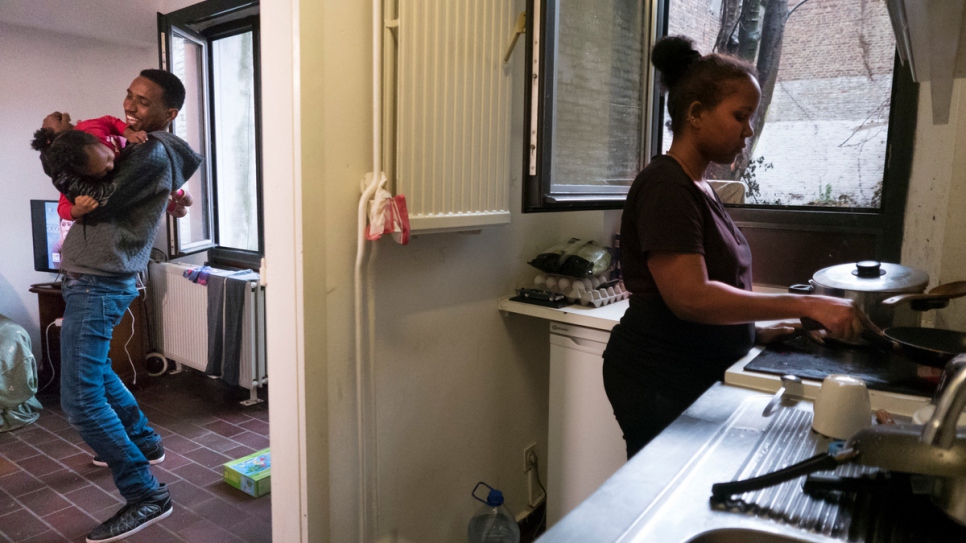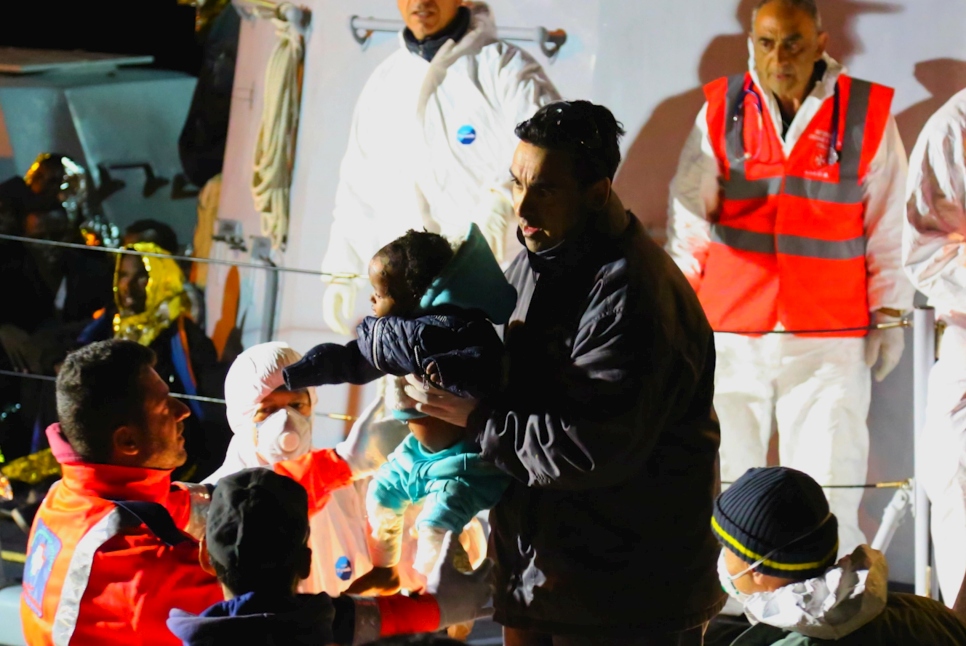Girl's burns recall nightmare flight to safety
After their infant daughter survived horrendous burns in Libya gas tank blast, refugee family starts over in Belgium.
Dina plays on the grass in a park nearby her home in Antwerp, Belgium.
© UNHCR/Marc Hofer
More than a year has passed since Rahel bundled her infant daughter, badly burned in an accident a few days earlier, onto a smugglers' boat on the Libyan coast and headed for Italy.
The 15-month-old toddler, along with many of her 70 fellow refugees and migrants, had been injured when a gas cylinder blew up in the cooking area of the smugglers' den where she and her mother were in hiding, awaiting their departure for Europe. Several people were killed in the explosion and fire.
Rahel knew that if they went to hospital they would be arrested by the Libyan authorities. Instead, after an agonizing few days’ wait, they were able to leave on a boat.
Rahel, 26, from Eritrea, looks at photographs of her daughter Dina that she took with her phone after the accident in April 2015 and bursts into tears.
“I saw fire, I ran outside and saw Dina burned here, on here and here,” she says, pointing to her legs, face and arms. Dina suffered third-degree burns on 80 per cent of her body, including her face.
“I saw fire – I ran outside and saw Dina burned."
Rahel’s partner, 28-year-old Azoz, who comes from the same Horn of Africa country, is visibly distressed as he looks at the pictures for the first time since the accident.
Italian coastguards intercepted the vessel on which Rahel and Dina were travelling about midnight on April 17, 2015, and ferried the refugees to the island of Lampedusa. Many others had also been badly burned by the gas explosion.
At the time of the accident, Rahel was inside the house and Dina was outside where the cooking was taking place.
“I saw fire,” Rahel said. “I ran outside and saw Dina burned here, on here and here,” she added, pointing to her legs, face and arms.
“The day I arrived in Italy, I felt like a crazy woman. When the Italian [coastguard] rescued us, I felt happy. I thought: ‘It’s over, we made it.' But I was worried about my daughter – will she die or be okay? I was only thinking about her.”
Dina received immediate treatment for her burns in Italy and she has had follow-up care in Belgium. The scars on her face have gone, those on her legs and arms are fading and will heal with time, doctors say.
Azoz remembers the day Dina was born in Sudan in December 2013 as a very happy day. The couple had left Eritrea for Sudan with the aim of eventually going to Europe.
Azoz had to leave Rahel and baby Dina behind, hoping he could reach Europe first and set up home before the arrival of Rahel and his newborn child. People smugglers took them to Libya by car.
After failing to obtain entry into the United Kingdom, where his sister lives, he sought asylum in Belgium where he has a cousin. The family now has refugee status there.
They live in a one-bedroom ground-floor apartment in a traditional neighborhood of Antwerp where Dina, now nearly 3, attends nursery. Her parents travel an hour to attend language school in another part of town.
Having been in Belgium longer, Azoz has a better knowledge of Dutch but Rahel knows enough to follow the news on television.
Azoz usually collects Dina from nursery and spends much of his free time playing with her, taking her for walks in the park. When he received the call from Italy, he feared he might not see his daughter again. “I didn’t think Dina would live. But when I saw her here in Belgium I was very, very happy.”
Memories of home are never far away. They play African music as they make traditional food for dinner, and the smell of coffee beans being roasted and infused with spices wafts through the flat.
As she brews the coffee in a clay pot, Rahel jumps as the gas hob lights up. “I see the faces of the people who died and I can’t sleep,” she said.
Three people died after reaching Italy from injuries they suffered in the fire. Rahel said she counted eight who died on the spot in Libya. One badly burned woman committed suicide a few months after arriving in the Netherlands, she added.
“I see the faces of the people who died and I can’t sleep."
Dina’s scars are a constant reminder of the second chance at life given to her daughter. “I want Dina to finish school, I want her to be in good health for the rest of her life, I want her to be happy.”
The child already seems settled in Belgium. She has made friends at nursery and talks to them confidently in Dutch.
Her parents are finding it more difficult to integrate. Besides the wet climate, the couple find life in Belgium has challenges. Half the financial assistance they receive from the government goes on rent, the rest on living expenses and transport costs.
However, Rahel and Azoz try to focus on happier things. The couple are not yet married and hope to do so once they can afford it. They are keen to learn the language and find jobs. Rahel said she did not mind what type of work she did, while Azoz had arranged an interview for a job as a plasterer.
“If you don’t work you don’t have anything,” said Rahel. “If you don’t work you don’t feel normal, you stay at home and be stressed. You go crazy.”

